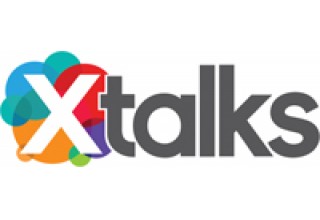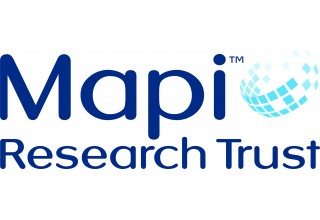The Obsessive Compulsive Drinking Scale (OCDS) - a Short Questionnaire Used to Assess Alcohol Use Disorder and Treatment Outcome, New Webinar Hosted by Xtalks

TORONTO, May 17, 2018 (Newswire.com) - In a live webinar upcoming on Thursday, May 31, 2018 at 10 a.m. EDT (3 p.m. BST/UK), featured speakers Dr. Raymond F. Anton, Scientific Director of an NIAAA funded Alcohol Research Center and Piero Bindi, Author Relations Specialist for the Author Collaboration Unit at Mapi Research Trust, will discuss how to use the Obsessive Compulsive Drinking Scale (OCDS) to reflect patients’ obsessionality and compulsivity related to craving and drinking behavior during your next clinical research study.
Participants will learn how to:
- Appreciate the relationship between OCDS and craving from a neurobiological and neuroanatomical perspective
- Understand how the OCDS relates to alcohol severity and alcohol withdrawal status
- Apply the OCDS in treatment assessment and follow-up
The 14-item OCDS, taking less than 5 minutes to administer, when translated into many languages, can be used to assess the severity of Alcohol Use Disorder (AUD), aspects of alcohol craving, and monitor treatment progress. It can be used as an aid in drug development and regulatory filings. Attendees will hear about the development/validity of the scale and how it can be used in various clinical and research settings, including correlations with brain imaging findings and during clinical trials.
Background on the OCDS
The Obsessive Compulsive Drinking Scale (OCDS) was an adaptation of a widely used scale that measures non-alcohol related obsessive thinking and compulsive behavior. It was recognized that some aspects of alcohol dependence or addiction had features that were similar in nature (although not biologically equivalent) to obsessive-compulsive disorder. That included intrusive and uncontrollable thoughts about alcohol use/drinking, neglect of role responsibilities because of these thoughts, and discomfort/anxiety because these thoughts could not be controlled – thus leading to compulsive (uncontrolled) alcohol use that could not be easily resisted or suppressed. It was also discovered during the OCDS development, that the core concepts measured by the scale share common elements with what is commonly described as, “alcohol craving.
One important difference is that the OCDS measures more “cognitive and behavioral aspects of craving” and not necessarily various emotional aspects associated with it. In fact, early in its development, Dr. Raymond F. Anton, Author of the OCDS Health Research Scale, noticed that many individuals with alcohol use disorder would say they did not “crave alcohol” but state that they “did think about it often” and “could not stop thinking about it” especially when confronted with alcohol cues (peoples, places, and things associated with drinking). The OCDS captures these aspects of craving.
The 14-item self-administered (5 minutes) OCDS, although often thought of as an “alcohol craving scale,” was developed as a questionnaire that could 1) assess the need for treatment, 2) monitor progress during treatment and 3) potentially provide an instrument acceptable to clinicians and regulators that would be indicative of effective treatment response during drug development. In fact, there are differences in OCDS scores based on alcohol use disorder severity, and between social drinkers, early at-risk drinkers, and those meeting alcohol use disorder criteria seeking treatment. It has been correlated with brain imaging findings, thereby validating that alcohol-induced changes in brain areas/connections might underlie alcohol use disorder diagnosis and aspects of craving.
OCDS scores also can change over the course of treatment, indicating improvement or worsening core features of alcohol use disorder, and, in at least one study, the change in OCDS score was able to predict subsequent drinking behavior and relapse several weeks before it actually occurred. Since the OCDS has two questions about actual alcohol consumption, it can substitute for other measures of alcohol intake – but, if one desires a “pure estimate of obsessive thinking or compulsive use,” those two items might need to be removed in the scoring. Alternatively, a subscale (2-total) or factor (3-total) that does not contain those drinking items might be considered.
The concepts measured by the OCDS have captured the attention of many clinicians and scientists worldwide. It has been translated into at least 13 languages, has been used in clinical trials and pharmaceutical company registrations, and is employed as an aid in diagnosis and assessment during clinical care. It can be administered by paper or computer/tablet format and easily scored.
For more details visit eProvide: https://eprovide.mapi-trust.org/instruments/obsessive-compulsive-drinking-scale.
Register today to learn more about the OCDS questionnaire and how to gain access for use in clinical research or academia.
Mapi Research Trust is the official licensor and distributor of more than 300 COAs, on behalf of their developers and copyright owners. Please visit our catalog to access the complete list of COAs managed by Mapi Research Trust or visit our website for additional information on our services to developers and copyright owners.
ABOUT XTALKS
Xtalks, powered by Honeycomb Worldwide Inc., is a leading provider of educational webinars to the global life science, food, and medical device community. Every year thousands of industry practitioners (from life science, food, and medical device companies, private & academic research institutions, healthcare centers, etc.) turn to Xtalks for access to quality content. Xtalks helps Life Science professionals stay current with industry developments, trends, and regulations. Xtalks webinars also provide perspectives on key issues from top industry thought leaders and service providers.
To learn more about Xtalks visit http://xtalks.com.
For information about hosting a webinar visit http://xtalks.com/why-host-a-webinar.
Contact:
Nima Rajan
Tel: +1 (416) 977-6555 ext 352
Email: nrajan@xtalks.com
Source: Xtalksc

